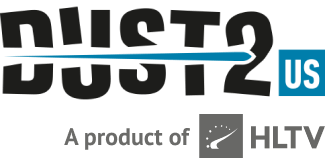
ESIC: "expect to see a great increase in the number of sanctions over the next 6 to 12 months"
Last week, Dust2.us sent a representative to the EGES at ExCeL London where ESIC were hosted their Global Esports Summit. Although the conference was mostly centered around discussion of esports in a broad view rather than that of ESIC's primary purview, integrity, there were some takeaways worth talking about.
One of the primary talking points of the conference was that ESIC wants to expand into other areas outside of being a governing body for integrity — its primary focus and founding reason. These include becoming a regulatory body for player agencies, launching an agent registry, and offering an insurance product for esports companies.
The primary claim that we "should expect to see a great increase in the number of prosecutions and sanctions for regulatory breaches over the next 6 to 12 months" came as part of an opening speech by the commissioner, Ian Smith. He explained that ESIC are "in the process of signing with partners which will give [them] access to investigatory tools which [they] cannot afford and investigatory expertise to scale up [their] investigations".
As part of the process to expand their capabilities and capacity as the integrity body for esports, ESIC are in the interview stage of hiring a full-time investigation manager that will help them complete their "massive backlog of investigations" and start "actually producing the results that [they] were established to produce". The role will involve taking workload off the commissioner as they will present him with "prosecution files" rather than the commissioner himself spending timing investigating individual cases.
During the event, Stephen Hanna — ESIC's Director of Global Strategy & Partnerships — also discussed upcoming partnerships with anti-cheat providers that the anti-corruption side of ESIC will utilize to "retrospectively" analyse performance of players, also adding that the tools could be used for monitoring underperformance for the purposes of match-fixing.
A large talking point for both Ian and Stephen were the new tools that the different partnerships would give ESIC the ability to use. The primary tool that was talked about the most was the access to intelligence mapping tools which utilize open data sources to track and link connection, for example on social media, between different parties, such as players and bettors. These tools would make linking bettors to players a simple task for investigators and allow them to have more evidence in cases of fixing.
Another briefly mentioned topic by Ian Smith was the signing of MOUs with multiple publishers. These memorandums of understanding are non-binding agreements that state intentions to take some form action of partnership. The goal behind these agreements is to move the needle closer to a universal integrity commission that has its bans honored in multiple games so that, for example, a player cannot move to VALORANT after receiving a match-fixing ban in Counter-Strike.
 Also read: ESIC ban 4pack and retchy; clarify status of nosraC, J0LZ, and vek in ongoing matchfixing investigation
Also read: ESIC ban 4pack and retchy; clarify status of nosraC, J0LZ, and vek in ongoing matchfixing investigationSuccinctly mentioned in the morning of the conference was ESIC's new Esports Integrity Monitoring System (EIMS). Previously the network of partners and supporters would communicate with ESIC via email if they had something to report and then ESIC would have to then alert the remainder of the network via email again. To combat the inefficiency of this, the new EIMS web platform was commissioned to replace email.
First showcased at the Esports Regulatory Congress in Barcelona in 2019, the EIMS will allow betting partners and ESIC supporters to report any suspicious irregularities in real-time and also receive alerts in real-time from other supporters so that they monitor their own betting platforms for similar behaviour and report back to ESIC, if needed. It was unclear whether the platform has finally launched or is still in the works as it was back in 2019.

A final takeaway from the conference, in regard to Counter-Strike, was a lengthy discussion on the current coaching bugs and bans situation. The commissioner admits that Valve becoming involved in the process became "complicated" because they based their bans on the demerit points that had been levied against each individual without taking into consideration the discounts and concessions that has been given to many of the coaches. The bans then placed upon certain individuals became "unfair and disproportionate" in the eyes of ESIC, who believe in rehabilitation and not in permanent bans, explained Ian Smith.
He went on to mention that attempts to "redress" the disproportionate bans on the "badly affected" coaches have been "close to impossible" because Valve "won't engage" and refuse to "come to the table" on this particular issue. Stephen Hanna interjected to say that while ESIC do appreciate that Valve took their work seriously, the way they went about it harmed the livelihood of many coaches permanently. Expressing his disagreement with permanent bans in esports, the commissioner went on to give a small monologue:
What we're really dealing with here, for the most part, are West Coast American publishers who take the view — and in 90% of cases I agree with this view — that they get to choose with whom they do business. I understand that, they're a business, and they get to choose who they do business with. But what that doesn't take account of in many cases is the fact that there's an entire industry, a way of earning a living, that has grown up to the side of their game that has consequences. So, stopping somebody playing the game or be involved in the game isn't the same for some kid who downloaded a piece of crap cheat and got caught — who’s then notionally banned for life and is back on the game — and a top-level coach who's then excluded from top-level competitions, for life, for one or two or three infractions of something that he has served his time for. He's taken his punishment; he's admitted his guilt. And like in any area of life, once you've done your time, you're entitled to re-enter society unless what you did was so serious that you lose that entitlement, and in my view, that isn't what happened here.
Finishing the discussion, the topic moved to the currently ongoing investigation into the further two coach bug exploits which were first reported by Dexerto. Stephen Hannah started off by saying that based on their data, a "very substantial class of people and very high profile people [will] be affected" by their findings. He explained that they are tasked with how to both be "consistent" with their "previous approach" while also mitigating the affects that the "status quo" enforced by Valve will bring.
The commissioner concluded the topic by saying that "at some point [they] have to produce an outcome otherwise [they] are not being fair" on the coaches previously sanctioned. Some may argue that this is far too late considering the original bans were now almost 19 months ago and all but two coaches (excluding HUNDEN's further ban) have served their ESIC bans in full.
Dexerto's Richard Lewis wrote at the end of March; "it is reasonable to expect [the new bans] at any time before" the upcoming Major, with his source saying that the investigations were in “the final stages” and that official communications were being prepared. With it having been 25 days since Richard's article and only 16 remaining until the PGL Major begins on May 9th, the bans being finalized and announced prior to Antwerp is seeming increasingly unlikely.
Also read
























